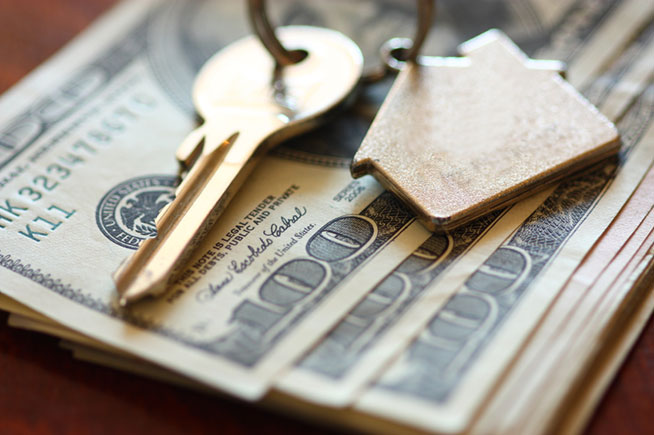The period of time from the day you sign the contract to the day you close on your new Sarasota property can be both exciting and hectic. Closing on a house or condo is always a big day! Here we go over what you need to know, what details and loose ends need to be taken care of, and what to expect at closing to ensure that you are ready to take ownership of your new Sarasota property.
Closing Preparations: Are You Really Ready?
Ideally, closing on your new Sarasota home should be a formality. The documents are signed, the monies exchanged for the keys, hands are shaken and off you go. Because it isn’t always an ideal world, a good Realtor should take the time to prepare you for what to expect so that your closing day goes as smoothly as possible.
Prior to your closing on a house, you should review all of the documents you will be signing, make sure all of your paperwork is in order, the utilities are turned on and that your money is accessible to complete the purchase. With the following five tips, you should be as ready as you can be!
1. Estimate Purchasing Costs: So You Don’t Come Up Short
As you move forward in the process your Realtor, Closing Agent, and Mortgage Broker (if applicable) will advise you of the costs for purchasing the property. Many of the costs involved are fixed costs based on either the US Dollar amount of the transaction or the size of the property, either land or structure.
One instance of fixed cost is taxes on the transfer of property from one person to another, in this case from the seller to the buyer. Taxes on transfer also referred to as document stamps, are a fixed rate for any property, at .07 cents per hundred dollars.
So, for example, on a $100,000 home, it would come to $700. This is usually paid by the seller but can be a negotiation point. This tax rate is set by the State of Florida.
All of these purchasing costs are one-time fees that are part of completing the transaction. When you are financing (receiving a mortgage), your purchasing costs are a bit higher than when paying cash.
In order to cover the purchasing costs (inspections, survey, title, appraisal, legal fees, title insurance premiums, taxes on transfer, recording fees), and mortgage taxes and fees (if applicable) you should estimate spending between one and three percent of the purchase price.
It is interesting to note that we recently had a transaction involving a family from the UK. Due to the volatility of the British Pound in the spring of 2016, they decided to lock in a forward contract with a currency trader. This protected them in the event that the pound moved lower against the dollar which would have decreased their buying power.
2. The Closing Statement: This is What it Says
The closing statement is essentially a document that itemizes all of the expenses of the transaction. It is a complete reflection of the credits and debits involved in the sale.
This closing statement acts as a reconciliation of all monies flowing between Seller, Buyer, and any 3rd-party vendors that will be paid via the closing statement. This form also simplifies the process for you as the Buyer so that you only have to transfer one lump sum.
The closing agent must provide you as the buyer the closing statement 3 business days prior to closing.
In 2015 there was a second closing statement introduced that is used when someone receives bank financing. Both forms perform the same accounting reconciliation function. The new form for financing, called the Closing Disclosure (known as TRID), also includes sections for interest rate, repayment amount, etc.
The bottom line is that both forms explain all of the settlement costs, and who pays whom, in detail. It will let you, as the buyer, know exactly how much money you need to bring to closing.
Click on the links below for PDF examples of these documents:
Closing Statement (Cash Purchase)
Closing Disclosure (TRID — Used in Financing)

3. Things That Need to be in Place Prior to Closing on a House
The following are things that need to be in place prior to closing because the day of closing on a house belongs to the Buyer. This means that all expenses related to the property will be charged to the Buyer on this day forward including electric, water, property taxes, and insurance.
Balance Due
In a cash closing, the buyer must bring to closing the difference between the amount he/she put down as a deposit and the purchase price, as well as any outstanding purchase or ownership costs that are due at closing.
If the buyer is financing, this number is the purchase price and purchase costs, less the initial deposit(s) and amount of the mortgage. Typically the balance is paid via wire transfer, though some buyers still opt for a certified check.
Proof of Insurance (Only if You Are Financing)
For proof of insurance, you will need a letter or statement showing you have taken out homeowners’ insurance on the property. This is required by the lender. This must be handled in advance of the closing date as the policy has to be in place on the day of closing.
Typically, this is coordinated between the mortgage broker/lender, closing agent, and insurance broker. Property insurance is not required in Florida if you pay cash for the property. We strongly encourage having the proper amount of insurance in place.
Utilities & Service Providers
The buyer assumes the cost of utilities on the day of closing on a house, thus he or she is responsible for establishing his or her own account for all utilities prior to that date. The Realtor can help with which companies to contact for services such as water/sewer, electric, cable (or satellite TV), telephone/ internet, and if applicable, natural gas or propane.
Also, if the buyer wants to continue using service providers that are in place for things such as pool cleaning and lawn care, these parties can be contacted as well to set up a new account.
By contract, the property is supposed to be maintained by the owner/seller until the day of closing. Usually, lawns are mowed and pools cleaned just prior to the closing day.
Photo ID
Don’t forget that you will need a photo ID at closing. Most of us carry one with us. But it would be silly to have to delay the closing because you didn’t bring one.
4. Closing Day: This Is When You Seal the Deal
With increasing ease of travel and technology, closings are becoming less and less of an “event” done at a scheduled time and location with all parties in the same room. Many times sellers and buyers are signing documents on different days and at different locations, including anywhere around the world.
Your closing can be conducted by email and mail if you can’t be present. It’s also worth noting that U.S. embassies provide notary services for foreigners.
The closing itself will be run by a closing agent or real estate attorney. His or her job is to ensure that you understand each form you are signing.
Whether you as the buyer or the seller, choose the closing agent varies by county and can be negotiated in the contract.
If you are present at the closing you will possibly meet with the sellers (unless they have completed all the documents by mail), both Realtors, and often a real estate attorney to sign a huge mountain of paperwork, (unless of course, it is a cash transaction- which is far simpler with fewer papers to sign).
By the time you wade through and sign it all, you’ll be the proud owner of a title, a mortgage, and some shiny new house keys. This is important if you are not going to be present for closing, to determine where and how you will receive the keys and remote(s) for garage doors, gated entries, etc.
The fees for the closing agent’s work are included in the title insurance costs and are set by the State of Florida.
5. Closing Forms: The Deed is Done!
In addition to the closing statement, here are some of the most important forms at closing for the buyer:
Warranty Deed
The piece of paper that officially transfers the title from the seller to the new owner. Florida is a title state, which means that you, rather than the lender, hold the title to the property.
Loan Package (Only if Financing)
There are numerous documents lenders require including the Mortgage Agreement, Truth in Lending Statement, and Promissory Note.
The time you spend at your closing is largely defined by whether you are paying cash or financing. In the cash scenario, you’ll probably spend less than 30 minutes at your closing.
If you are financing, the process is more time consuming as there are many financial and legal forms. You can spend around an hour working through all the required forms and signatures.
Closing day is a big and exciting day! We hope that by offering you a general idea of what to expect, we are able to help make that day just a little less stressful and a lot more fun. Remember that this day is going to affect both you and your family for a long time to come, so take your time and ask questions about anything that may be unclear to you.
As always, you are encouraged to be diligent about seeking professional advice tailored to your own particular circumstances so that your closing day can be a pleasant opening of a brand new chapter…
And when you have signed the last document, you can exhale and start enjoying your new Sarasota residence.
Schedule a free 20 minute Sarasota real estate orientation video conference by selecting a date in the sidebar.


